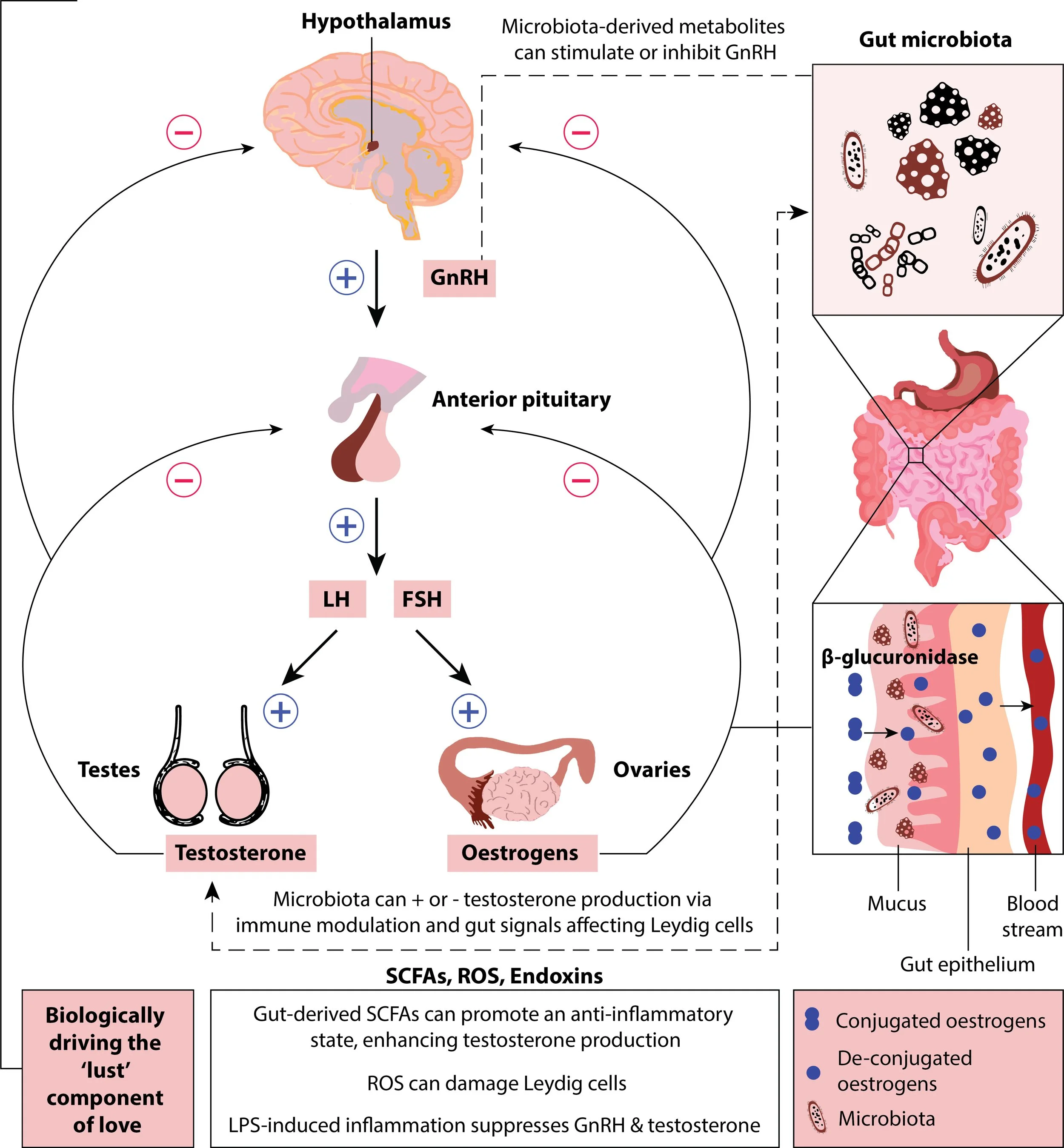🦠 🩷 Could love be microbial? 🩷 🦠
At first glance, the idea might seem reductive, as if something as profound and poetic as (romantic) love could be reduced to molecules and microbes. But check out our new paper in mSystems where we hypothesise that love-associated emotions may, in part, emerge from deeply relational processes between humans and their microbial symbionts.
‘Does a microbial-endocrine interplay shape love-associated emotions in humans? A hypothesis’ https://journals.asm.org/eprint/HH8FANEM5JIC9XTRPSUE/full
We explore the hypothesis that microbiomes influence love-associated emotions via hormonal and neurochemical pathways. Indeed, microbial metabolites shape the activity of the very messengers that biologically govern aspects of connection: oxytocin, vasopressin, dopamine, serotonin, testosterone and oestrogens.
Seen through the lens of the holobiont (the integrated organism-plus-microbiome), romantic love might be more entangled than we thought. A subconscious collaboration. A deeply relational psychological and biological experience. A walking ecosystem of co-evolving lifeforms.
From a practical perspective, dysbiosis (a microbial imbalance - or 'life in distress') and associated disrupted hormone signalling – shaped by diet, stress, pollution, antibiotic use or trauma – could influence mood, libido, emotional regulation and attachment. What feels like a personal failing may have microbial undercurrents.
This warrants further investigation... And the same is true for other emotions and behaviours – think aggression, fear, anxiety, empathy.
It was great working with co-authors, Ondi Crino, Araceli Camargo and Martin Breed!
Read more: https://journals.asm.org/eprint/HH8FANEM5JIC9XTRPSUE/full
For more on this interconnected thinking, check out my books: www.jakemrobinson.com/books

